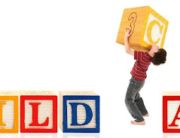The five entities that a buyer may choose to set up to buy a business in are:
- A company
- A company and trust
- A trust on its own
- A partnership
- Sole trader
In my experience, the majority of buyers buy their business in a company entity. It is also becoming common for accountants to set up a combination of company and trust.
As always, what is best for your needs, is to be discussed with your accountant.
In Western Australia — where stamp duty is payable on the purchase price businesses — once the entity has been entered on the contract of sale, not so much as a letter in that entity name can be changed without the possibility of the State Revenue office of WA charging double stamp duty.
Stamp duty is charged on the sale price of the business in a couple of States. A buyer’s settlement agent or lawyer can advise the amount applicable, or you can go online via a calculator from the State Revenue site. This will calculate the amount of the stamp duty that will be payable on the purchase price.
A company name is registered via ASIC.
This can be done via your accountant, or there are companies that can also arrange this quickly and easily for a set fee. See under Resources on ABB site.
Generally, your accountant will handle this for you. If it is going to be a company as Trustee for a Trust, then the company and trust must go on the contract of sale to buy the business. Your accountant should provide and confirm the exact wording at time of contract.
Registering Your Company Name
A company name is registered via ASIC (Australian Securities & Investments Commission).
An ABN (Australian Business Number) is not required on a contract of sale; however, if a company is buying a business, the ACN (Australia Company Number) will be required if the ABN is not yet available.
Tax Implications

There are various tax advantages which your accountant needs to explain, depending on the type of entity that you choose to buy a business under.
It is advisable to make sure that you get it correct from the start. It can be a very time-consuming and costly process to try and change three months or three years later.
Some people prefer to commence as a sole trader and look into changing to a company at a later date, particularly if the business is a small or trade business.
On occasion, a buyer may consider buying the company of the seller who owns the business, instead of the business. This may be done if there is a real need or reason to the advantage of the buyer, i.e. the company owns a license that is difficult to obtain or time-consuming to obtain.
Remember — when a buyer purchases a company, they are also buying the history of that company. A buyer purchasing the shares in a company needs to be very careful that they are legally exempt from responsibilities, liabilities, and debts both historically or currently of the company relating to both past directors and the Company entity. This is the main reason 99% of small to medium business sales are business only purchases, not Company share transfers.
By : Angela Williams
Are you buying a business in Perth? Do you have a Perth business for sale? For more information on how you can get the best results, contact Angela at Advance Business Brokers today.






